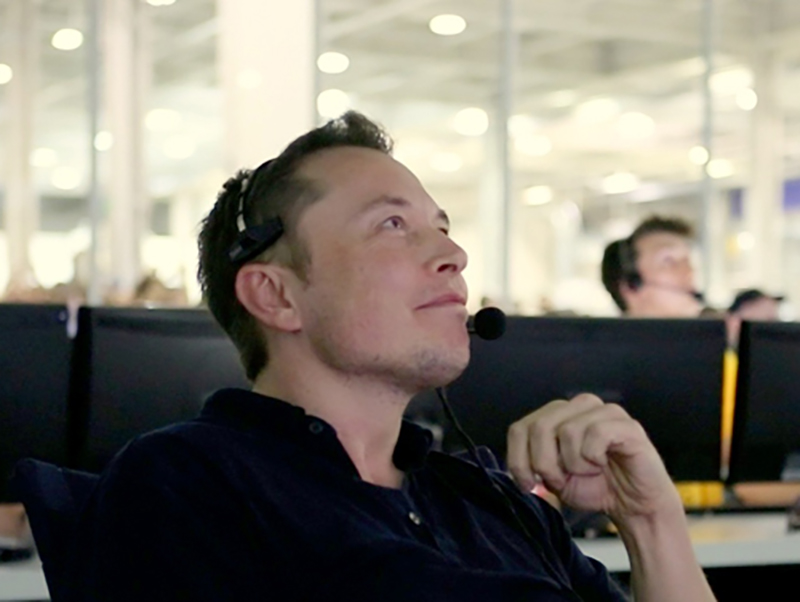Elon Musk finished another chaotic week that saw Twitter reject his unsolicited takeover advances by adopting a so called poison pill.
Twitter’s board on Friday announced it would implement a limited-duration ‘shareholder rights plan’ that could stall or prevent Musk’s takeover attempt.
Elon Musk is a noted user of the Twitter platform with 81 million followers. But he is highly critical as well of the platform, and has touted his takeover plan as vital for civilisation and to protect free speech.

Poison pill
As a result, Twitter’s board on Good Friday adopted a a ‘poison pill’ to limit Elon Musk’s ability to raise his stake in the social media platform.
Twitter was quoted by Reuters as saying on Friday it adopted a poison pill that would dilute anyone amassing a stake in the company of more than 15 percent by selling more shares to other shareholders at a discount.
Known formally as a shareholder rights plan, the poison pill will be in place for 364 days.
The move would not stop Musk from taking his offer directly to Twitter shareholders by launching a tender offer.
And while the poison pill would prevent most Twitter shareholders from selling their shares, the tender offer would allow them to register their support or disapproval of Musk’s offer.
Wedbush analyst Dan Ives noted the poison pill is a typical defensive move but it will not be appreciated by shareholders.
Twitter enacted poison pill; our thoughts-TWTR going down the poison pill path is a predictable defensive measure for the Board to go down that will not be viewed positively by shareholders given the potential dilution and acquisition unfriendly move. Likely challenged in Courts
— Dan Ives (@DivesTech) April 15, 2022
Rival bid?
Reuters meanwhile also reported, citing people familiar with the matter, that Thoma Bravo, a tech-focused private equity firm, has informed Twitter that it is exploring the possibility of putting together a bid.
It is not clear how much Thoma Bravo would be prepared to offer and there is no certainty that such a rival bid will materialise, the sources told Reuters, asking not to be identified because the matter is confidential.
However Thoma Bravo’s interest does raise the prospect of more private equity firms vying for Twitter stakes, Reuters noted.
Musk chaos
Elon Musk is the world’s richest person with a net worth (according to Forbes) of $265 billion, but he has certainly unleashed a wave of chaos for the social media platform of late.
Musk is a fierce critic of the platform, and recently polled users whether the platform should include an edit option, but Twitter later confirmed it was already working on the feature.
Last month Musk hit out at Twitter for “failing to adhere to free speech principles” and asked whether a new platform was needed.
There is concern among some observers that Musk’s championing of free speech could lead to the reinstatement of Donald Trump’s Twitter account, after he was banned on many social networking platforms for his role in inciting a mob of his supporters to storm the US Capitol building on Wednesday 6 January 2021, which resulted in the deaths of at least five people (including one police officer who was beaten to death).
Earlier this month Elon Musk shocked many observers when he revealed that he had acquire a 9.1 percent stake in Twitter, making him (at the time) its largest shareholder.
Despite his frequent criticism of Twitter, Musk was invited to join its board of directors, but at the last minute he declined, prompting speculation he was planning a hostile takeover, as joining the board would have limited him to a maximum 14.9 percent shareholding until 2024.
Days after that, The CEO of Tesla and SpaceX revealed in a late regulatory filing that he has offered to buy Twitter for $41 billion in cash, saying the firm needs to go private to see effective changes.
Shareholder opposition
Musk was almost immediately sued by a disgruntled Twitter shareholder over his late notification of his stake in Twitter.
Last week Musk hinted he had a plan B in store, if Twitter’s board rejected his “best and final” takeover offer.
That plan B will likely see Musk approach Twitter shareholders directly, bypassing the board.
Musk’s offer however is being opposed by a t least one noted Twitter shareholder, namely Saudi Arabia’s Prince Alwaleed bin Talal.
The prince has a long term stake in Twitter via his investment firm Kingdom Holding Company, which holds 5.2 percent of Twitter.
He rejected Elon Musk’s proposed bid last week, saying it doesn’t “comes close to the intrinsic value of Twitter given its growth prospects.”
I don’t believe that the proposed offer by @elonmusk ($54.20) comes close to the intrinsic value of @Twitter given its growth prospects.
Being one of the largest & long-term shareholders of Twitter, @Kingdom_KHC & I reject this offer.https://t.co/Jty05oJUTk pic.twitter.com/XpNHUAL6UX
— الوليد بن طلال (@Alwaleed_Talal) April 14, 2022
Musk immediately replied asking how many Twitter shares Prince Alwaleed’s firm owns, adding: “What are the Kingdom’s views on journalist freedom of speech?”




